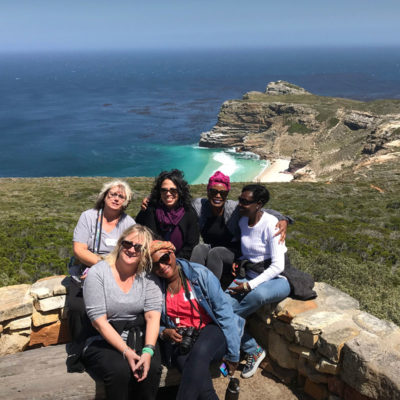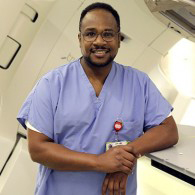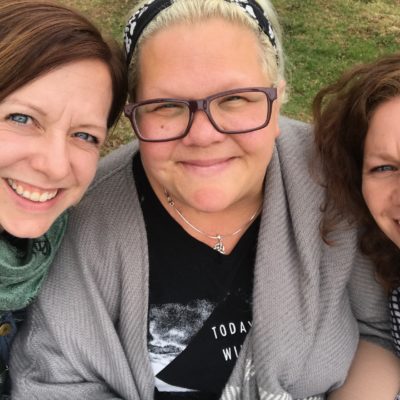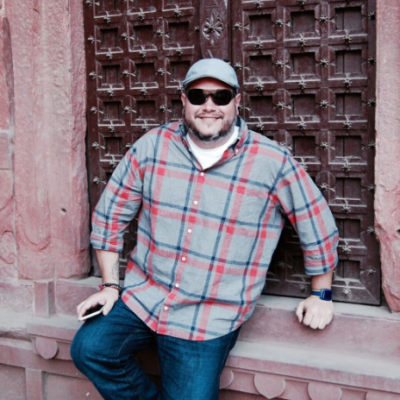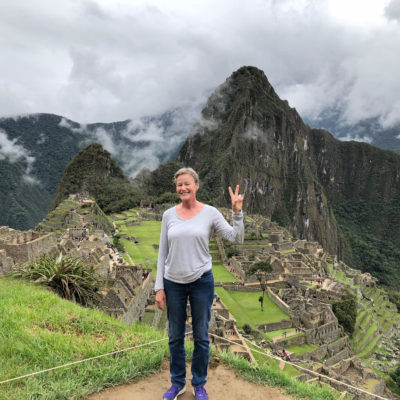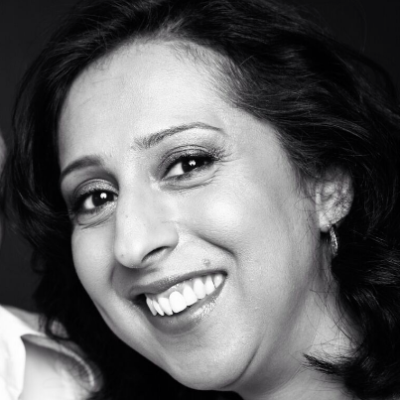Bin’s Story: Gratitude and Advocacy
As a men’s health advocate and research associate with the Cedars-Sinai Heart Institute, it was Bin’s mission to encourage other men to visit their doctors. In 2014, while Bin conducted a training program for blood pressure screening, he realized he hadn’t taken his own advice. He went to his doctor, and that routine checkup revealed he had aggressive prostate cancer.
“I was in complete and utter shock,” he said. “I was 46 years old, I worked out and ate fairly well, and just never thought that I was somebody who would have cancer. But I did.”
Bin had no idea what to expect—and after surgery, hormone therapy and 37 radiation treatments, the physical and emotional toll mounted.
“I was starting to lose my hair after radiation. I was gaining weight and feeling like I was in a dark place,” he said. “I was stressed out and anxious, and nobody in my family really had experienced cancer, so I didn’t have any point of reference in terms of how you cope with all of this stuff. As a guy, sometimes we don’t talk to other guys about it, in terms of support, so I just was kind of going through this experience myself.”
Bin found an art therapy program where he witnessed the strength of other participants–women who could still laugh despite multiple cancer diagnoses or living with Stage 4 cancer.
“As a guy, you’re thinking, we’re stronger, we’re macho. These ladies, hands down, were so resilient and so strong,” Bin said. “I learned so much about what strength looks like, what courage looks like—all these aspects that guys associate with being a man.”
Bin wanted to find ways to create more support services for men in his community – especially African American men, who are less likely to regularly go to the doctor. He began with a blanket search for any kind of volunteer programs helping cancer survivors, and discovered one that sparked his interest.
“When I saw A Fresh Chapter, I was like, this is it.”
India 2016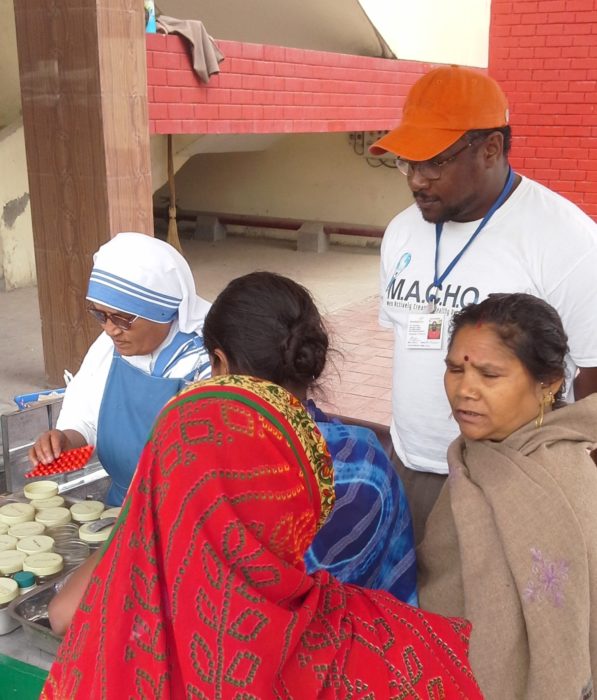
One of the challenges Bin overcame to attend the India trip was the prospect of 27 hours on a plane—but enduring his fear was worth it. He stepped out into a new world filled with new smells and sounds and languages; a rush of people and color and life.
“When I met AFC founder Terri Wingham and the group of survivors and heard their stories—that was impactful alone,” Bin recalled. “But once I started reaching out into the community, I saw a culture that was thriving. I saw people who were living in the streets, but they were seemingly happy and joyful. It opened my mind to you can find joy in any experience.”
“I came away from that experience with so much gratitude. Like, gratitude off the charts. It literally was one of the most powerful, most impactful experiences in my life. It can completely transform your vision of life, your own life and the lives of the world around you.”
Being in a new environment, learning from a different group of people, and being able to share his own experience with other cancer survivors in an intimate, focused way offered Bin the clarity and vision to create his own new fresh chapter.
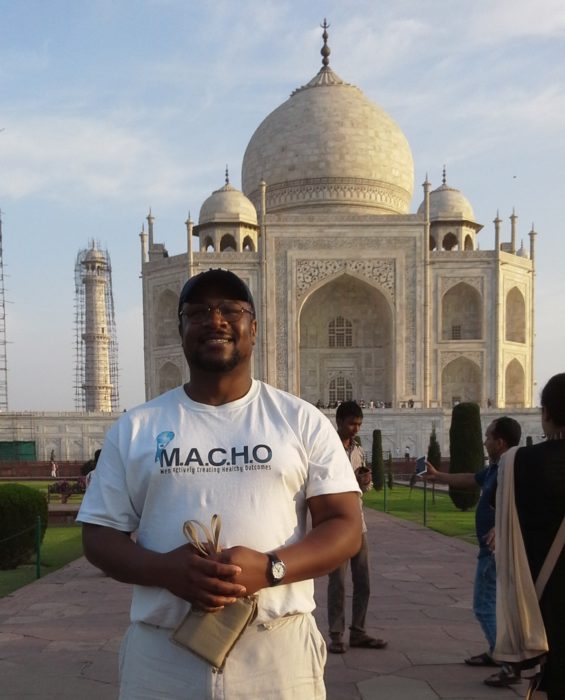 “When I came back from India, I had already been formulating this vision in my mind of how I wanted to pay it forward, if you will, and help my community and help men,” Bin said. “When you look at the statistics, men are twice as likely to die from cancer as women. We die six years earlier, in general. Most of that is because we don’t go for the screenings, we don’t go for the routine checkups. A lot of guys don’t go to the doctor for years.”
“When I came back from India, I had already been formulating this vision in my mind of how I wanted to pay it forward, if you will, and help my community and help men,” Bin said. “When you look at the statistics, men are twice as likely to die from cancer as women. We die six years earlier, in general. Most of that is because we don’t go for the screenings, we don’t go for the routine checkups. A lot of guys don’t go to the doctor for years.”
Health advocacy
Bin grew up in an African-American community in Los Angeles, the son of a chiropractor and a nurse, yet even in his health-minded family, there wasn’t much discussion about family health history or screenings beyond “eat right.” Nor was there much discussion within his community about health, whether because of a lack of awareness or a stigma related to getting bad news from the doctor.
“These are conversations that we have to have in our churches and in our schools,” Bin said. “That knowledge that people of color as well as men don’t access the support services as much was the reason that I started my advocacy work. I wanted to figure out how I can be a better vessel to help my community, the people I grew up with.”
The answer was two-fold: Upon arriving home from India, Bin took a new position working with Dr. Arash Asher,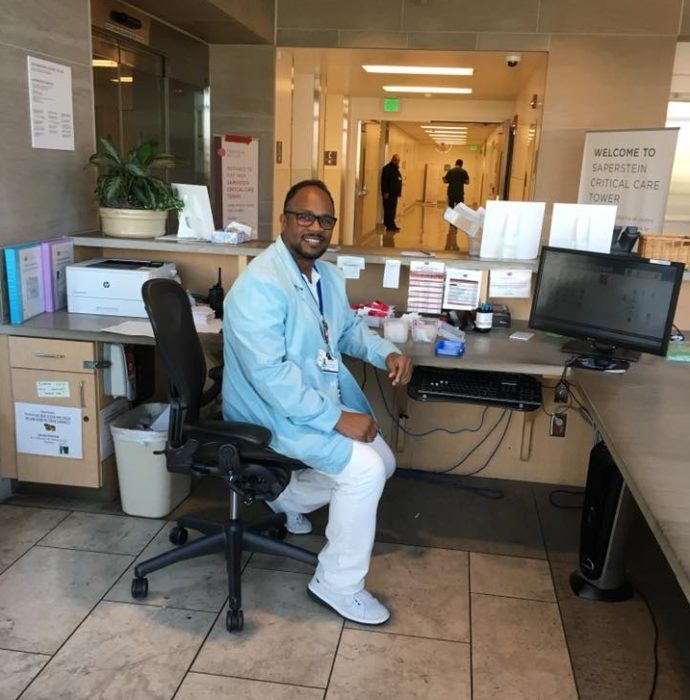 director of the Cancer Rehabilitation and Survivorship program at Cedars-Sinai Medical Center, to support patients on a daily basis.
director of the Cancer Rehabilitation and Survivorship program at Cedars-Sinai Medical Center, to support patients on a daily basis.
Bin, who received a scholarship through the Melissa Carroll Legacy Fund for his trip to India, developed a powerful Ripple Impact Action Plan—a commitment each AFC scholarship recipient makes— in the form of a men’s health advocacy organization called MACHO (Men Actively Creating Healthy Outcomes). MACHO supports research, conducts community health outreach and seeks pledges from men to be proactive about checkups. The organization’s name helps redefine what it means to be “macho,” that in taking care of themselves, men can continue to be strong.
MACHO also focuses on reaching men of color to help combat the high prevalence of illnesses among those groups, such as hypertension, diabetes and prostate cancer among African-American men. Annually, Bin also sponsors five $500 Men’s Health Essay Scholarships for young men of color from Los Angeles, seeking essays on what men’s health means to them and how they will bring health awareness to their families and their communities.
“I speak at churches, I do health fairs. I’ve gone to wherever people let me show up. I’ve shown up to promote health awareness of prostate cancer screenings for guys.”
Bin also is featured in a Bristol-Meyers Squibb Survivorship Today video with “This is Us” star Sterling K. Brown, which reaches men nationwide.
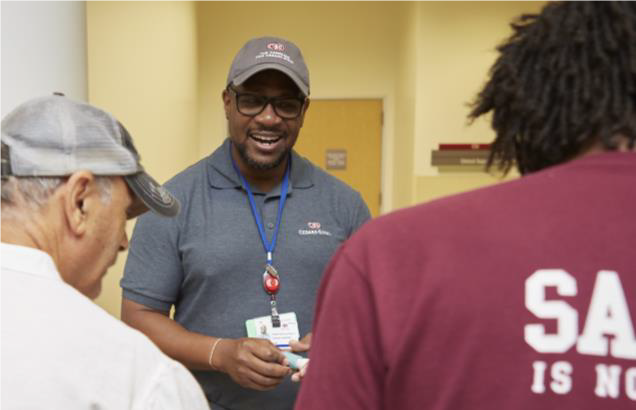 Since returning from his A Fresh Chapter trip, Bin has been declared cancer-free, and his MACHO program has reached thousands of men, encouraging screenings for cancer, hypertension, diabetes and other health issues.
Since returning from his A Fresh Chapter trip, Bin has been declared cancer-free, and his MACHO program has reached thousands of men, encouraging screenings for cancer, hypertension, diabetes and other health issues.
“If I step back and think, ‘Wow, that’s a lot of people,’ I think it’s pretty wonderful,” Bin said. “If I help encourage just one person or I can help save even one life, I think I’ve done my job.”
*To learn more about Bin, visit MACHO at http://www.macho4life.com/ or read more about Bin on A Fresh Chapter’s website: https://afreshchapter.com/2016/03/10/four-questions-with-bin/.



